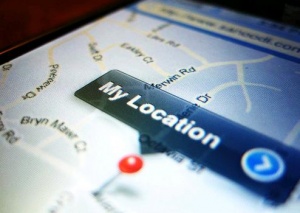Difference between revisions of "Smartphones (Location Services)"
From SI410
| Line 36: | Line 36: | ||
*In the workplace | *In the workplace | ||
*Personal life (family, friends) | *Personal life (family, friends) | ||
| − | < | + | |
| + | |||
| + | <references/> | ||
| + | |||
| + | |||
| + | [[Category: Information Ethics]] | ||
| + | [[Category: Virtual Environments, Concerns, & Issues]] | ||
| + | [[Category: Citations Needed]] | ||
| + | |||
| + | |||
| + | ([[Topics|back to index]]) | ||
Revision as of 14:41, 11 February 2016
(Reserved by Z. Zasuwa)
Location Services introduction/summary goes here:
- High stability and low entropy of human physical movement
- Issues: default settings (opt-out rather than opt-in), user ignorance, permissions and security, excessive and unnecessary privileges between OS and apps
Contents
Background and History
Development of capable technology:
- multilateration - location determination via cell phone signal triangulation; uses the variation in the reception of signal bounce-back to determine relative position[1]
- When was the first GPS chip in a smartphone?
Stakeholders
- Smartphone users
- Mobile phone carriers
- Software developers
- Advertising/marketing firms and the businesses they serve
Notable Cases
From popular culture, etc.
Legislation
To protect consumers/minimize risk/for convenience (Apple's "Find My Friends" app)
Policy
How major brands vary (iOS, Android, Windows Phone)
Ethical Implications
- In the workplace
- Personal life (family, friends)
- ↑ Sample footnote
